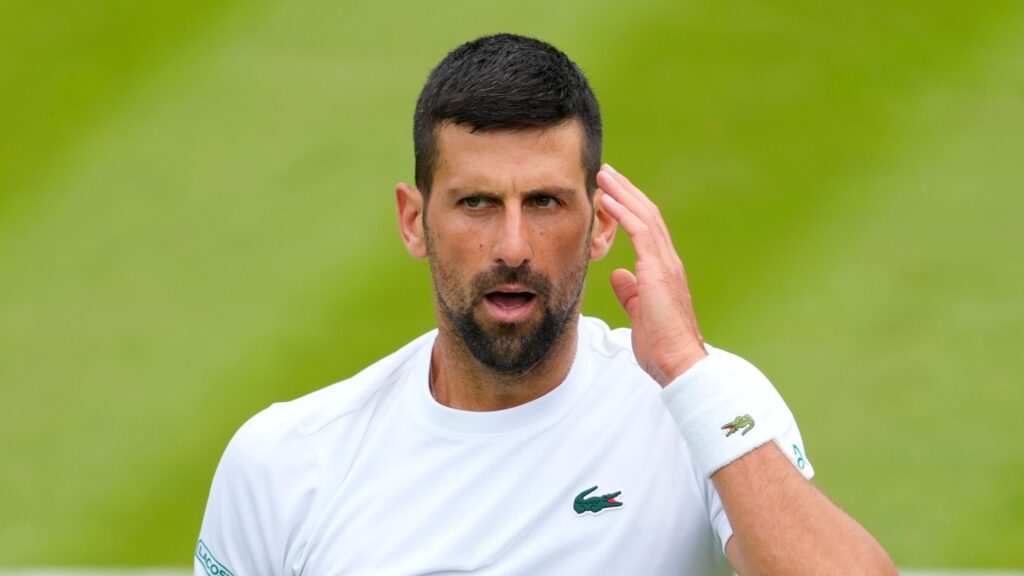When Novak Djokovic stepped up to the microphone to dissect his performance after his brilliant fourth-round victory over Holger Rune at Wimbledon, it became clear that he had a few things to get off his chest. While the on-court interviewer may have wanted to keep the vibes light and positive on Centre Court, Djokovic was determined to make his disapproval of certain parts of the audience clear.
After heaping praise on the many “respectful” fans present, he did not mince his words towards those who had been zealously chanting throughout the match.
“I don’t accept it,” he said. “No. I know they were cheering for Rune but that’s an excuse to also boo. Listen, I’ve been on the tour for more than 20 years, so trust me, I know all the tricks. I know how it works. It’s fine, it’s OK.”
Over the course of his long, storied career, hostile crowds have become a regular feature in the Serb’s matches, sometimes even a second opponent. He has been heckled and insulted, he has had to find the strength to win when entire audiences are cheering against him and for his opponents.
Despite his on-court brilliance, he has faced more negativity than his other legendary peers as he upheaved what had initially seemed to be a two-way race for greatness, eventually forcing Roger Federer and Rafael Nadal to both see him as equal.
This week, though, the cheers from the Centre Court crowd were tame. At the US Open in 2021, Djokovic faced an 18-year-old Rune in the first round. As the match endured and became increasingly competitive, spectators committed to bassy, elongated chants of “Ruuuuuune”, which eventually encircled the Arthur Ashe Stadium. Monday’s audience at Wimbledon drew from that same energy as the cheers became increasingly loud and they were usually followed by laughter.
In a one-sided match that was moving to a very predictable ending, the crowd seemed to be intent on having a laugh. It can sound irritating, and some fans surely were rooting for Rune in order to root against his opponent, but that is the nature of sport. They still provided a better soundtrack for the match than the many Wimbledon audiences that have lost interest in the tennis on court, instead focusing their attention on popping champagne corks and chatting during points.

